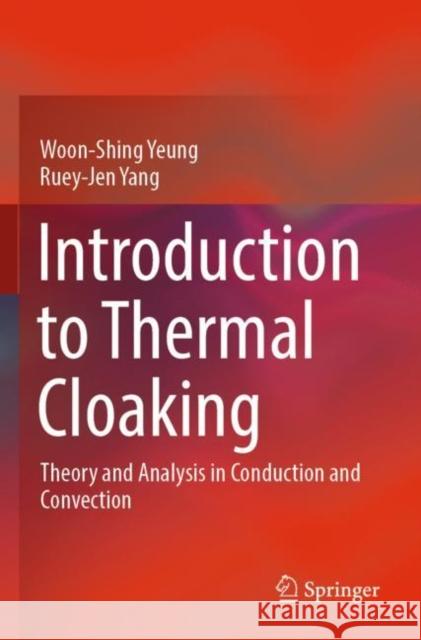Introduction to Thermal Cloaking: Theory and Analysis in Conduction and Convection » książka
Introduction to Thermal Cloaking: Theory and Analysis in Conduction and Convection
ISBN-13: 9789811675522 / Angielski / Miękka / 2022 / 259 str.
Introduction to Thermal Cloaking: Theory and Analysis in Conduction and Convection
ISBN-13: 9789811675522 / Angielski / Miękka / 2022 / 259 str.
(netto: 613,40 VAT: 5%)
Najniższa cena z 30 dni: 616,85
ok. 16-18 dni roboczych.
Darmowa dostawa!
This book introduces the fundamental concepts of thermal cloaking based on transformation theory and bilayer theory, under the conduction and convection heat transfer modes. It focuses on thermal cloaking with detailed explanations of the underlying theoretical bases leading to the primary thermal cloaking results in open literature, from an engineering perspective, and with practical application in mind. Also, the authors strive to present the materials with an emphasis on the related physical phenomena and interpretation, to the extent possible. Through this book, engineering students can grasp the fundamental ideas of thermal cloaking and the associated mathematics, thus being better able to initiate their own research and explore new ideas in thermal cloaking.While not intended to be a general reference in the vast field of thermal cloaking research, this book is a unique monograph addressing the theoretical and analytical aspects of thermal cloaking within the scope mentioned above. This book also contains many independent analytical solutions to thermal cloaking problems that are not available in open literature. It is suitable for a three-credit graduate or advanced undergraduate course in engineering science.
This book introduces the fundamental concepts of thermal cloaking based on transformation theory and bilayer theory, under the conduction and convection heat transfer modes. It focuses on thermal cloaking with detailed explanations of the underlying theoretical bases leading to the primary thermal cloaking results in open literature, from an engineering perspective, and with practical application in mind. Also, the authors strive to present the materials with an emphasis on the related physical phenomena and interpretation, to the extent possible. Through this book, engineering students can grasp the fundamental ideas of thermal cloaking and the associated mathematics, thus being better able to initiate their own research and explore new ideas in thermal cloaking. While not intended to be a general reference in the vast field of thermal cloaking research, this book is a unique monograph addressing the theoretical and analytical aspects of thermal cloaking within the scope mentioned above. This book also contains many independent analytical solutions to thermal cloaking problems that are not available in open literature. It is suitable for a three-credit graduate or advanced undergraduate course in engineering science.











